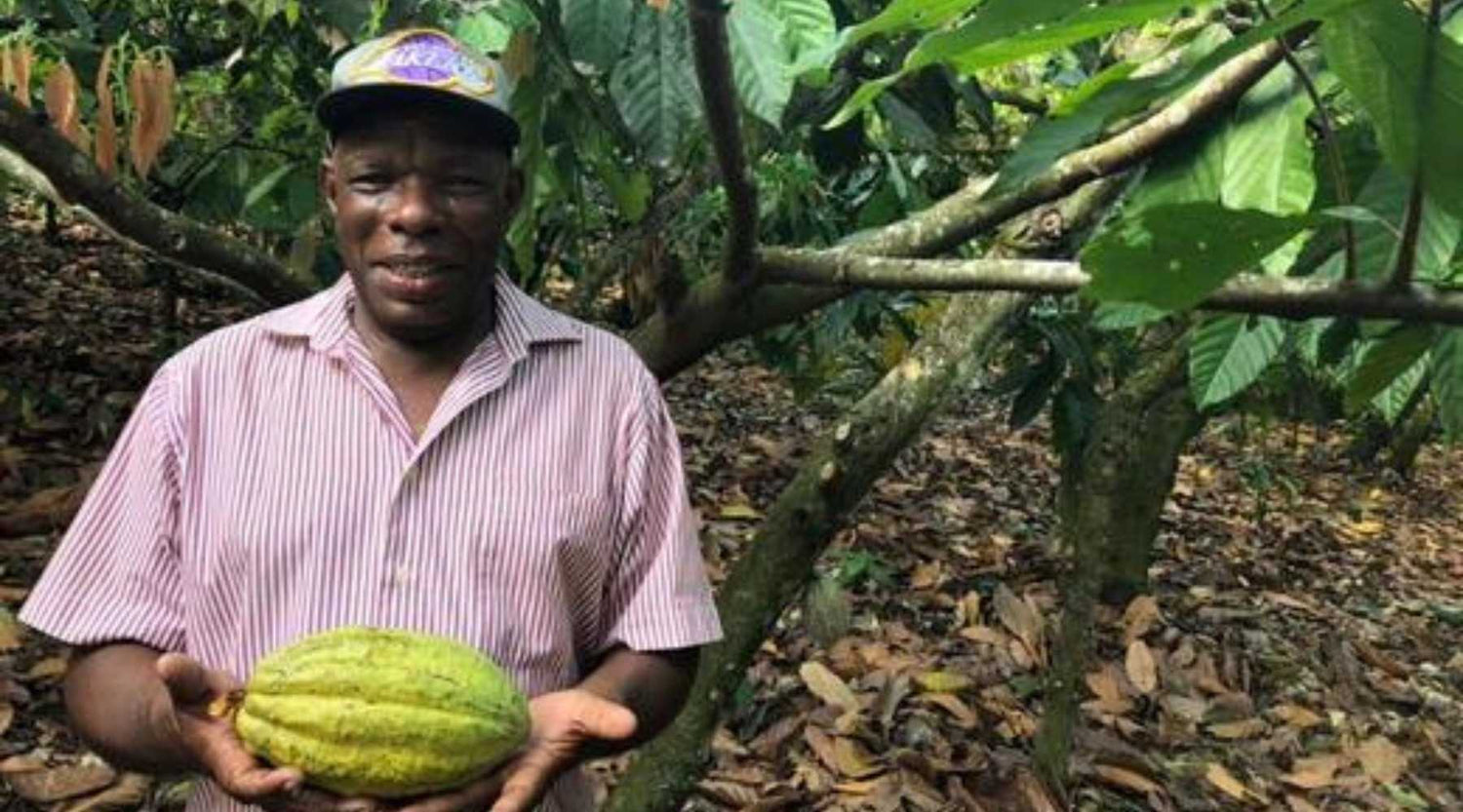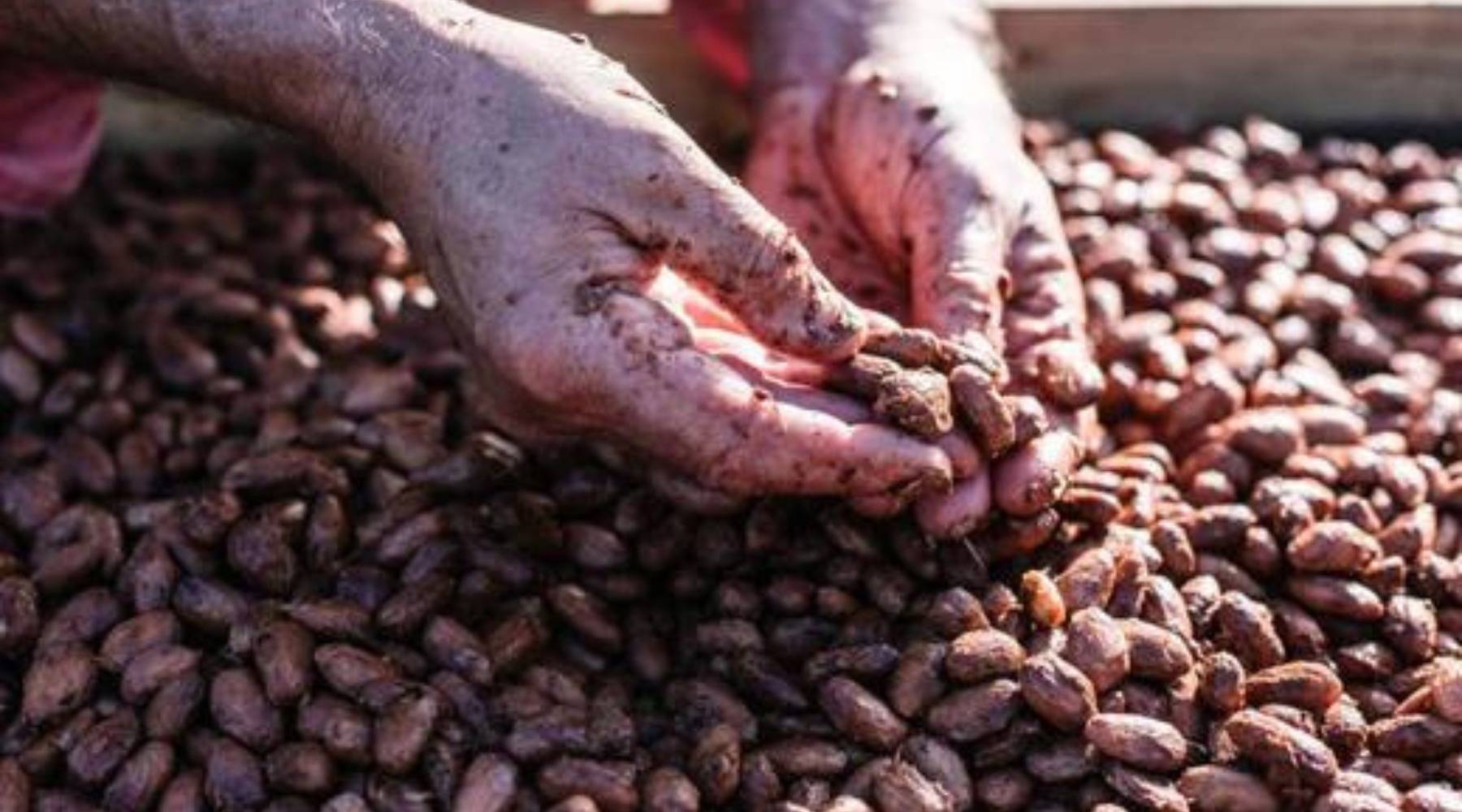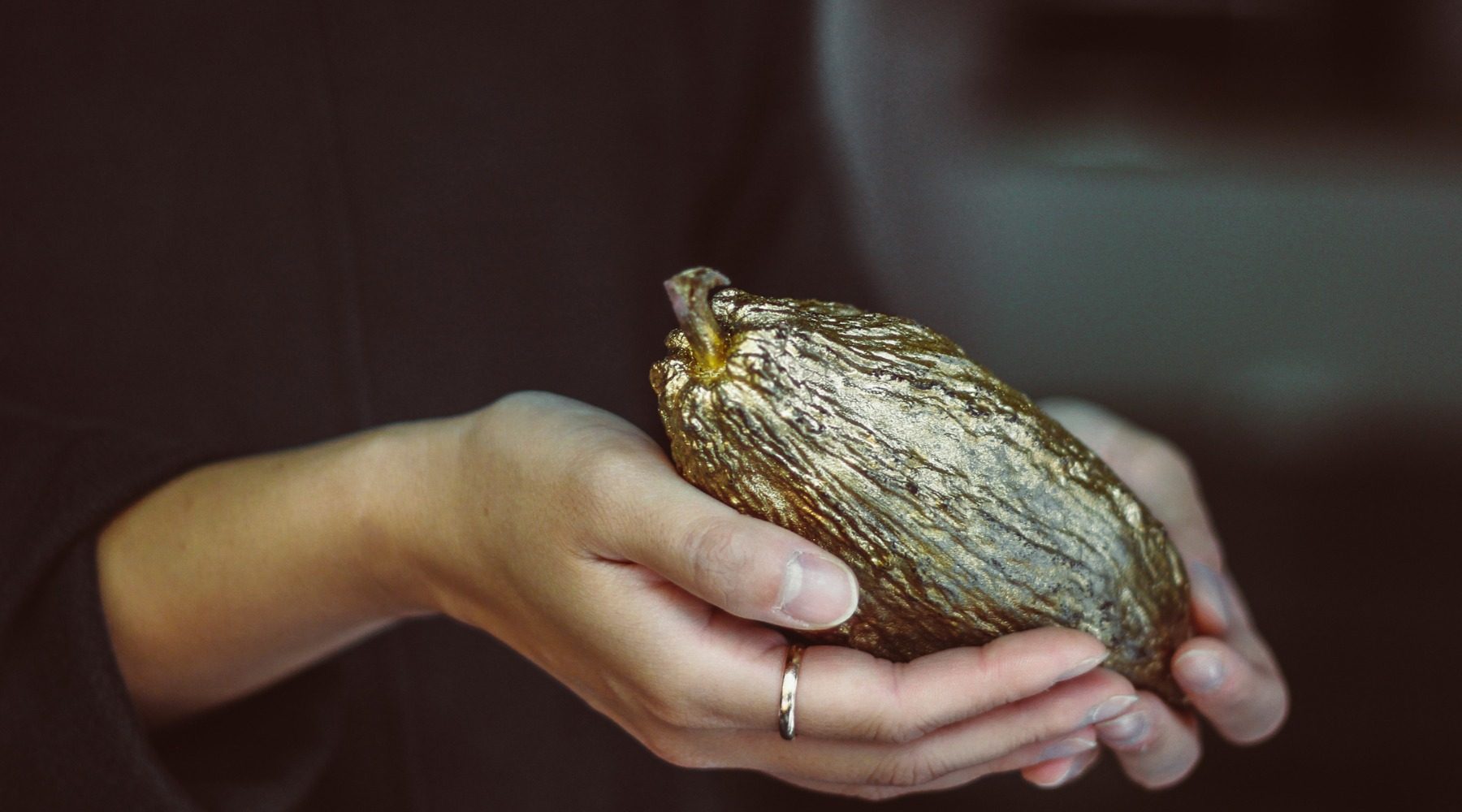From Pimental to the world
Öko Caribe is located in the Dominican Republic, more precisely in the small village of Pimentel in San Francísco de Macoris. Like Kokoa Kamili , they purchase freshly harvested cocoa beans directly from over 181 small farmers in Duarte Province. At Öko Caribe these are then fermented and dried. Öko Caribe then sends the processed and dried fine cocoa beans from the Dominican Republic to chocolate manufacturers all over the world. Öko Caribe founder Gualberto Acebey Torrejon and colleague drying the cocoa beans ©Öko Caribe
Öko Caribe founder Gualberto Acebey Torrejon and colleague drying the cocoa beans ©Öko CaribeQuality and transparency – cocoa beans from the Dominican Republic
Öko Caribe was founded in 2006 by the two founders Gualberto Acebey Torrejon and Adriano Acebey Torrejon. After both had worked for other organic cocoa producers for a few decades, they joined forces. Together they pursue the goal of improving the quality, transparency and local prosperity of cocoa farmers. Although they are active in a very competitive market - the Dominican Republic is one of the largest exporters of fine cocoa in the world - Gualberto and Adriano are equally valued and supported by international chocolate manufacturers, especially for their high quality standards.At Öko Caribe, the secret of their success is in the details! They have developed a strictly standardized post-harvest process. This determines exactly how long the cocoa beans ferment (6 days), how often the cocoa beans are ventilated, turned and how long they are dried. The latter happens in solar drying beds, where the cocoa beans dry for about a week to reach an ideal moisture level.
Less chemistry, more biodiversity
The soils in the El Cibao region – the center of Dominican cocoa production – are extremely fertile. The climate is tropical and the rainfall is plentiful: ideal conditions for growing (fine) cocoa beans. Like many other cocoa farmers who grow fine cocoa beans, Öko Caribe's partners work with agroforestry. This means that they operate sustainable agricultural systems that promote biodiversity (i.e. species diversity) and healthy soils by practicing mixed farming. The cocoa trees are planted between large shade trees and other crops (such as avocados, bananas, oranges and much more). In this way, many diseases to which cocoa plants are susceptible can be avoided without resorting to pesticides or chemicals.
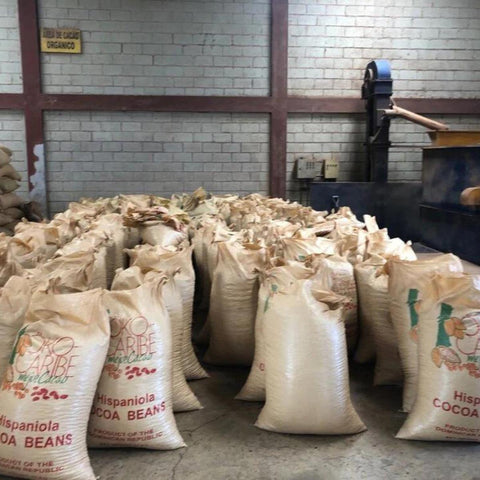 Öko Caribe's cocoa beans are ready to ship. ©Uncommon Cacao
Öko Caribe's cocoa beans are ready to ship. ©Uncommon Cacao
This type of cultivation also means that the soil remains fertile for a long time. This means that the clearing of further fertile land can be avoided. Unfortunately, this is usually the case, especially in conventional cocoa cultivation. Here, cocoa farmers are cutting down rainforests on a large scale to create new fertile soil for cocoa cultivation. Most of Öko Caribe's cocoa beans are mostly Trinitario and Nacional (originally from Ecuador) and Criollo. Harvested from March to July.
Think Global, Act Local
Gualberto and Andriano help local cocoa farmers achieve a good balance between high yields and sustainability. They offer them further training in the areas of soil and crop planning, reforestation and waste management. Öko Caribe would like to use their work to contribute to increasing prosperity in the local economy. They not only help cocoa farmers to become better at their work. They are also actively committed to improving public facilities. For example, they promote the maintenance of local schools and the improvement of roads and transport routes.We are pleased to offer several chocolates in our shop that were made from Öko Caribe cocoa beans. We love their fruity and nutty notes, which can be found in the chocolates from Raaka and Svenska Kakaobolaget as well as in our ' Cool Beans ' .
More information about Öko Caribe's cocoa cultivation can be found on their Instagram account or directly on their website .
